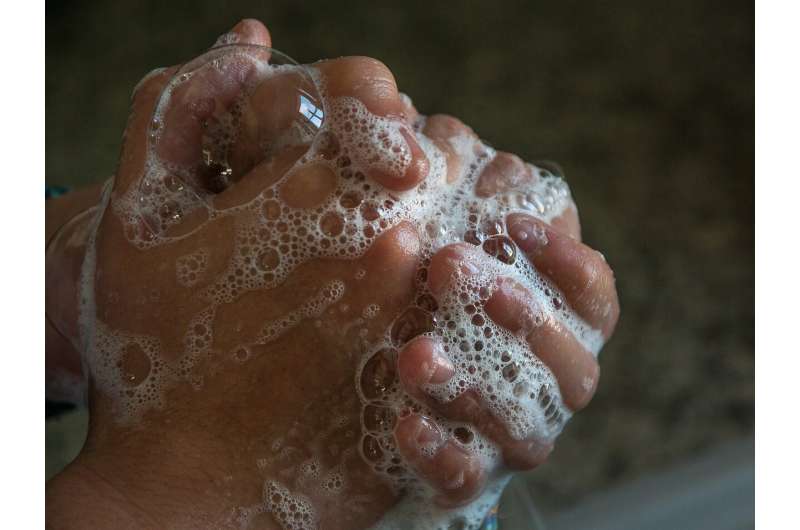Survey: Australians washing and sanitizing their hands 15% less than this time last year

The Food Safety Information Council today released Omnipoll national research for Global Handwashing Day showing there has been a 15% decrease in the number of times in Australians washed or sanitized their hands a day, on average, since the same time last year.
Food Safety Information Council Communication Director, Lydia Buchtmann, said that handwashing plays an important role in reducing rates of food poisoning and other infectious diseases.
"In the survey Omnipoll asked how often people washed their hands and used hand sanitiser on the previous day. While 1 in 6 people couldn't recall how often, the others reported that, on average, they washed their hands 6.7 times a day (compared with 7.5 times a day last year) and sanitized them 3.3 times a day (compared with 3.9 times a day last year)," Ms Buchtmann said.
"There was still a handwashing difference between genders with women saying they washed their hands, on average, 7.6 times a day and men only 5.9 times. Women sanitized their hands on average 3.4 times a day and men 3.2 times.
"As with last year, families with children were more likely to wash their hands and use sanitiser than those without children. People over 50 were less likely to use sanitiser, possibly because they were less likely to go out and about as others during the COVID-19 pandemic. There was no correlation between respondents' vaccination status and levels of hand washing or sanitizing.
"This Global Handwashing Day we encourage Australians to keep your handwashing rates up and reduce your risk of food poisoning by always washing your hands with soap and running water for 20 seconds and drying thoroughly (or using hand sanitiser if hand washing facilities aren't available) on these occasions:
- before handling, preparing and eating food
- after touching raw meat, fish, shell eggs or poultry
- after using the toilet, attending to the toileting of children (or others), and changing nappies
- after blowing your nose
- after touching a pet
- after gardening
- after returning home
"To remind Australia of the importance of good hand hygiene, the Food Safety Information Council has launched an education package today including videos and posters for both adults and children that give 4 simple tips for hand washing correctly. We strongly encourage schools to take the Glitterbug challenge to see how well children wash their hands with a fun scientific experiment using a UV torch. The package can be downloaded from our website here and we encourage people to watch the video and to put up the posters at home, in their workplace, or at school," Ms Buchtmann concluded.
The Food Safety Information Council would like to thank their members OnSolution and Accord Australasia who made this research and videos possible through charitable donations. We'd also like to thank the students and staff at St Aloysius College in Adelaide for their assistance in making the Glitterbug video.
Accord Australasia is the peak national industry association representing manufacturers and suppliers of hygiene, personal care and specialty products, their raw materials suppliers and service providers. Their industry's products are used every day across the nation in homes, public places, commercial premises, institutions, industry and farms. accord.asn.au/
The research was conducted nationally online over the period September 23–27, 2021, among a sample of 1215 people aged 18 years and over. To reflect the overall population distribution, results were post-weighted to Australian Bureau of Statistics data (Census 2016) on age, gender, area and highest level of education completed.



















